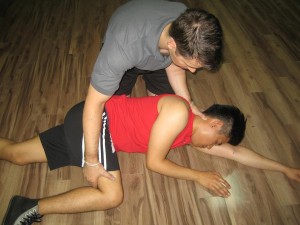Whenever a person takes too much of a drug – whether it is a prescribed, bought over-the-counter, or taken for recreational purposes – he/she can suffer from drug overdose. Whenever these drugs are taken in excess without appropriate medical supervision, it can be fatal for the health of the victim unless given prompt care.
How does a drug overdose occur?
Overdose or poisoning can have a wide range of effects on the body, but this varies greatly from the type of drug ingested, how much is taken, and the purpose for taking it. Apart from prescribed and over-the-counter medications that are taken without proper supervision, poisoning from drugs can happen to anyone. But they commonly occur on teenagers attending night parties and taking “recreational drugs” in hopes of staying “high” and active all night. The problem with this is that they do not know the contents and nature of the substance and its possible effects on the body. Sometimes, they even take more than one kind of drug, but this further complicates their health and could be fatal in the long run.
Treatment goals for drug overdose
As first aid providers, the only that you can do is to give as many information as possible to the emergency services once they arrive. So, the first step in providing first aid to a victim suffering from drug overdose is to call emergency hotline, check the patient’s breathing and vital signs, as well as to ask the patient some questions about the type of drugs taken. The main goal therefore is to avoid airway obstruction and maintain circulation and breathing while help arrives.
If the victim is conscious, do the following:
- Place them in a comfortable position
- Reassure, talk to, and calm the patient especially when they become agitated
- Regularly monitor vital signs, particularly the pulse and breathing
- Assess the surrounding and interview the patient to help you identify what kind of drug has been taken.
If the victim is unconscious:
- Check breathing and open the airway. Make sure that there are no obstructions
- Prepare to give rescue breathing and chest compressions if necessary
- If the victim is breathing normally, though, simply place them in a recovery position as help arrives.

Important reminder: there are some drugs that could cause serious overheating or sudden rise in body temperature. Be sure to check the patient’s temperature and remove any clothing if necessary to avoid further overheating of the body.
Learning some practical skills about first aid can help save someone’s life during critical situations. Enroll in a first aid course to know more about the importance of first aid administration.
Related Video on Drug Overdose First Aid:
Sources:
“Drug Abuse First Aid.” Medline Plus. Retrieved online on July 23, 2014 from http://www.nlm.nih.gov/medlineplus/ency/article/000016.htm
“First Aid For Poisons and Drug Overdoses.” Howstuffworks. Retrieved online on July 23, 2014 from http://health.howstuffworks.com/medicine/first-aid/first-aid20.htm
